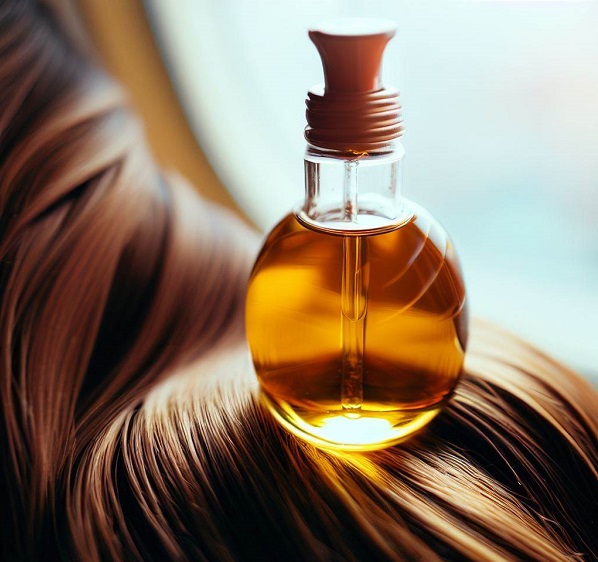Are you tired of your hair clippers not performing optimally? Do they pull and snag your hair instead of giving you a clean, smooth cut? If so, it’s time to pay attention to an essential maintenance task: oiling your hair clippers. Regularly oiling your clippers not only improves their performance but also prolongs their lifespan.
In this article, we will delve into the topic of how often to oil hair clippers to keep them in excellent condition. Let’s get started!
How Often to Oil Hair Clippers?
Hair clippers should ideally be oiled before or after each use to ensure their optimal performance and longevity. Regular oiling helps lubricate the blades, reducing friction and heat buildup, while also preventing rust and corrosion.
By following this practice, you can maintain the efficiency and smooth operation of your clippers, ensuring a consistent and comfortable haircutting experience. Remember to clean your clippers thoroughly before applying oil and wipe off any excess oil after lubricating the blades. Proper maintenance, including regular oiling, will help extend the lifespan of your hair clippers and keep them in excellent condition for years to come.
Importance of Oiling Hair Clippers
Regular oiling is vital for the overall performance and longevity of your hair clippers. Here are some key reasons why oiling is crucial:
Preserves Blade Sharpness
Oiling your hair clippers prevents the blades from becoming dull. The oil creates a protective barrier that reduces friction and wear on the blades, keeping them sharp and precise.
Prevents Hair Pulling and Snagging
When hair clippers are not adequately lubricated, they can pull and snag your hair, causing discomfort and an uneven cut. By oiling regularly, you minimize the chances of hair pulling, ensuring a smoother cutting experience.
Reduces Heat and Noise
Friction generated during the clipping process can cause excessive heat buildup and increased noise levels. Applying oil reduces friction, thus minimizing heat and noise production.
Frequency of Oil Application
To maintain optimal performance, you should oil your hair clippers after every use. This regular application of oil ensures that the blades stay lubricated and prevents them from rusting.
Additionally, if you use your clippers frequently or for professional purposes, it is recommended to oil them before each use. This extra step ensures maximum performance and extends the lifespan of your clippers.
How to Oil Hair Clippers
Oiling your hair clippers is a simple process that requires just a few minutes of your time. Here’s a step-by-step guide:
Step 1 – Clean the Clippers
Before oiling, make sure your clippers are free from any hair or debris. Use a cleaning brush or a small brush to remove any particles stuck in the blades.
Step 2 – Apply Oil
Dab a few drops of clipper oil onto the blades and guide the oil along the teeth and edges. Make sure to distribute the oil evenly to ensure complete coverage.
Step 3 – Turn On and Run
Turn on your clippers and let them run for a few seconds. This allows the oil to spread evenly across the blades, ensuring optimal lubrication.
Step 4 – Wipe Excess Oil
After running the clippers, use a clean cloth or paper towel to wipe off any excess oil from the blades. This step prevents the oil from transferring onto the hair during the next use.
Signs Your Clippers Need Oiling
While regular oiling is recommended, certain signs indicate that your clippers require immediate attention. Look out for the following indications:
Dull or Uneven Cutting
If you notice that your clippers are not cutting as smoothly as before or if they are pulling on your hair, it’s a clear sign that oiling is needed.
Increased Heat and Noise
If your clippers start generating excessive heat or produce more noise than usual, it’s a sign that the blades are not adequately lubricated.
Blade Rust or Corrosion
Rust or corrosion on the blades is a visible sign that your clippers lack proper oiling. Regular oil application prevents rust formation and keeps your clippers in top condition.
Other Maintenance Tips
In addition to regular oiling, here are some additional maintenance tips to keep your hair clippers performing at their best:
- Keep the Clippers Clean: Regularly remove hair and debris from the blades to prevent clogging and maintain optimal cutting performance.
- Sharpen or Replace Blades: Over time, the blades may become dull. Sharpen or replace them as necessary to ensure a clean and precise cut.
- Store Properly: Store your clippers in a dry and dust-free environment to prevent rust and damage.
- Follow Manufacturer’s Instructions: Always refer to the manufacturer’s guidelines for specific maintenance recommendations and any product-specific considerations.
Conclusion
Regularly oiling your hair clippers is a simple yet essential task that can significantly improve their performance and lifespan. By following the recommended frequency of oil application and properly maintaining your clippers, you can enjoy smooth, snag-free haircuts or beard trims for years to come.
FAQs
Can I use any oil for my hair clippers?
It is recommended to use clipper oil specifically designed for hair clippers. Other oils may not provide the same level of lubrication and protection.
How often should I clean my hair clippers?
It is advisable to clean your clippers after each use to remove hair and debris. This prevents clogging and maintains optimal cutting performance.
Can I use water to clean my clippers?
No, water can damage the clippers. Instead, use a cleaning brush or small brush to remove hair and debris.
Can I over-oil my hair clippers?
It’s best to follow the manufacturer’s recommendations regarding oiling frequency. Over-oiling can lead to excessive buildup and may affect the clippers’ performance.
How often should I replace the blades?
The frequency of blade replacement depends on usage and maintenance. Dull or damaged blades should be sharpened or replaced to ensure optimal cutting results.
